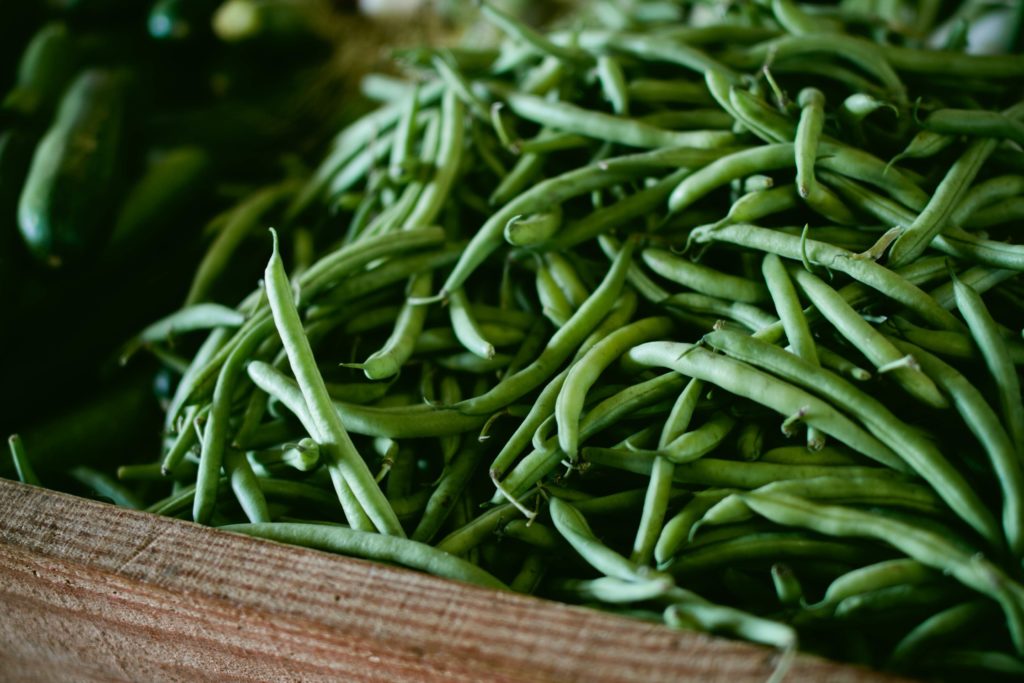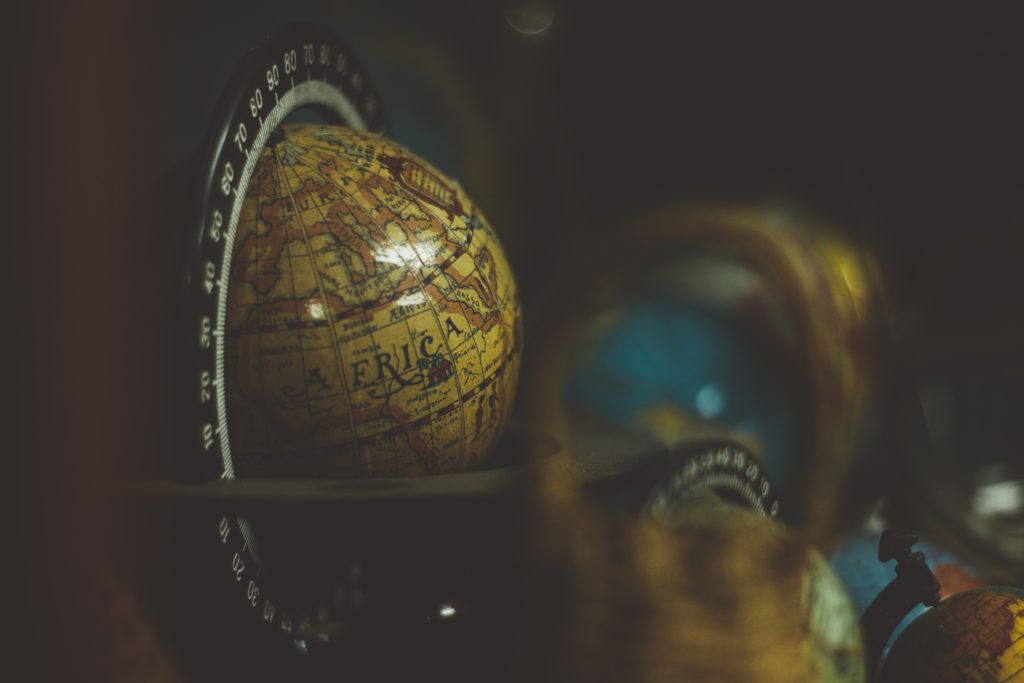“You are my friend. My first friend.”
We’d known each other for about an hour when she spoke these words in her best English. She told me her name twice, and I repeated what I heard, but even when we parted later, I couldn’t recall it.
But she was right: we were friends. Even though we had a difficult time understanding each other. Even though our skin color is different. Even though I am twice her age.
Officially, I was there as a volunteer. It was my first time serving in that capacity with a local organization that helps resettle refugees, and I had not a single clue how I could be of help. But I showed up anyway. I have no foreign language skills. No experience with social service. No background in social work. How on earth would I be able to help?
I sat with this family, newly arrived to the U.S., and listened to the presentation on nutrition and hygiene. I answered questions from the family, and “translated” English to simpler English. It was clumsy and imperfect. We watched each other’s lips form words and waited in silence for understanding to dawn. We smiled a lot. And laughed.
Maybe the first thing I learned was that language is no barrier for love. I could have decided not to volunteer because I don’t have any skills I think are valuable. I could have let my feelings about being unqualified limit my involvement.
And I would have missed out.
When our classroom portion of the orientation was finished, we walked to the market downtown. It was a beautiful, warm, sunny day, and along the way, I got to see the world anew. I forget what it’s like to be new in a place, to be seeing everything for the first time and to be so curious and unafraid of asking questions. As a born-and-raised American, I sometimes think I should just know the answer automatically, without ever having to ask anyone for help.
I tried to put myself in that place again. As my new friend read the words on the sides of buildings, I explained to her what each place was. We passed two banks on our walk, and I wonder what they think of that. Do they think we must have so much money that we need huge buildings to contain it all? And two within blocks of each other?
Maybe the second thing I learned, or re-learned, is that our way of life in this country is somewhat unique in the world. We can take some measure of pride in that, but I think we also need to understand that not everyone lives this way. During the class, I tried to explain snacks to the family. “It’s the food we eat between meals,” I said, and that did not translate no matter how many different ways I said it. Snacks aren’t bad, mind you, but if you come from a situation where meals might be scarce or culturally infrequent, eating extra food between meals is not an easy concept to explain. Ditto for trying to describe what a giant plastic tub of party pretzel mix is. Sometimes, I’m embarrassed by our culture.
Show and Tell
So, we arrived at market. All morning long I was searching my brain for different and simpler words to describe common (to us) objects. Like a sweet potato or yam. At market, I finally got to show my new friends what I meant when I said “beans” or “peas.”
We stopped first at a stand that sells turkey products.
“Like a chicken?” they asked.
“Yes. Like a big chicken,” I said. And the stand owner showed us an over-sized stuffed toy turkey. From there, it was a focused frenzy of listening for the questions from my new friends. They would point at vegetables, wanting to know what they were.
“Cabbage.” “Lettuce.” “Strawberries.” I felt like I was teaching my children again what fruits and vegetables are. Maybe parenting has given me more experience than I give myself credit for.
They pressed in close to me as we moved through the crowds, and tapped my arm to get my attention. I said so many words as we wandered the market aisles, both aware and unaware of the spectacle we must be. I barely noticed my husband until he was standing right next to me. I introduced him to my friends and he shook every hand. Later he told me: “This is what Kenya was for.” He knew from that experience that he would be expected to greet everyone in the group, so he was ready.
This is what Kenya was for.
I can’t get those words out of my head. Sometimes I still wonder if going to Africa made any difference. After the initial few weeks of reverse culture shock, life returned to relative normal. And though I took steps to start helping refugees back in the fall, illness and other things kept me from following through. (Spoiler alert: I’m terrible at follow through on most things.) But everything came together this spring, and finally–finally–this week, I got my start.
And I almost missed it.
The day before my official start, my back was giving me problems again, even after a chiropractor appointment. I was worried that I wouldn’t be able to handle the sitting and the walking my volunteer work required, but my husband encouraged me to try. He would be nearby and able to help me if I got in a jam. So, I did it and I don’t regret it for a minute. Because my first time in the class was this family’s first time in the class, and they are African, and if I had waited another week or two to start, I might have missed this new relationship.
I hadn’t planned to go back the next day, but I also knew from our time in Kenya that consistent presence builds trust. Connections we made in Kenya are difficult–but not impossible–to maintain, and our missionary friends encouraged us to work at keeping in contact, even returning to Kenya if possible so that the people we met knew we cared beyond a one-time visit.
So, I went back a second day because I wanted to get to know my new friends better. I didn’t even know their names, really, because I hadn’t seen them written down. And I wanted to know them better. To be on hand to assist however I could. So I sat in class again, this time filling out paperwork and trying to explain what a social security card is and why everyone in the family needed it.
I was the only Caucasian in the room, a fact I didn’t realize until much later. Many corners of the world were present that day in multiple languages, skin colors, and cultural practices. Everyone there to have a fresh start at life and needing to learn how to navigate this new country. Of everything I’ve done this week, these two brief stretches of time have been the most fulfilling. On Tuesday, I couldn’t stop smiling or talking about what had happened. I called a friend after it was over and ambushed her afternoon so I could download everything I’d seen, heard and experienced.
How I got here
As the training on Wednesday wrapped up, I told my friends that I would not see them again this week but would be back on Monday.
“I will miss you,” I said. I meant it.
“I will miss you,” one of my new friends said back to me. She hugged me and smiled. Her smile is my favorite thing these days.
I do miss them. Even though I needed to get back to my work–the writing and the housework–today, I feel like I’m missing something by not being there with them.
Each day I volunteered, I was asked by a staff member how I got involved with their organization. I don’t know how to answer that question without starting at Kenya, so I did. It mostly started when we looked in the faces and visited the homes of people who had been forced to leave their villages and towns and resettle elsewhere. It sprouted when we shared an airplane with distressed families leaving their homeland for an unknown land.
It began to grow when public figures began to speak unspeakable sentiments about refugees. I cannot bear to listen to the fear and the hate, so I took action instead. The whole political season is making me ill and I’ll never convince someone with words that I think their point of view is wrong. Sitting in a room with refugees, laughing and smiling and answering questions, feels the tiniest bit like rebellion. A love revolution. It is an act of survival in a world that seems full of hate.
On the same day I cast my vote in the primary here, I walked alongside refugees. I made new friends. Both actions were a demonstration of freedom.
I think a lot of us are wondering how to get through life these days, when hope is scarce and fear is king. I say start by making a new friend, whether it’s a refugee recently resettled in our country or your next-door neighbor. Perhaps it might even be someone you disagree with. Friendship might not solve all the problems, but it will make a change in our hearts.
Everyday Heroes
I tell you these things because I want you to know what it’s like to make a new friend from a different culture. I want you to understand the work that goes into resettling refugees. I don’t want you to think that I’m any kind of hero, and I’m not out to paint myself as a savior. I cannot fix anything for these families nor is that my role. I’m there to be a friend. To answer questions.
No, the real heroes are the caseworkers and the employees of the organization. Their days are full of paperwork and making appointments and serving as a go-between for the refugee families and government agencies. They are managing multiple cases and solving problems, like when the gas company fails to turn the gas on at one of the houses and the family can’t cook, the caseworker brings by a hot plate so they can cook warm food. They are in it for the long haul, and their time is limited. I feel like I get to do the fun stuff to support them.
Maybe it’s too early to be this excited. I’m sure I will have moments of frustration and discouragement. I’m only human, and these are human situations. The short term is easy. The long haul is hard.
Hang in there through the long haul with me?


Leave a Reply